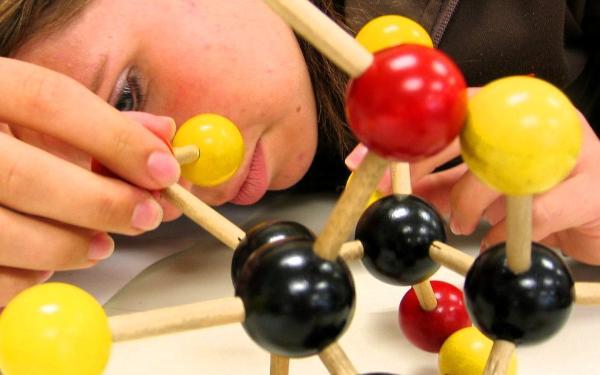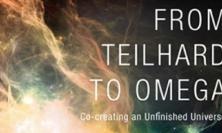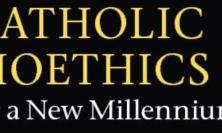Rev Dr Michael Fuller concludes his series on Thinking Faith by elaborating on the different ways in which scientific and theological disciplines can dialogue with one another. How can we avoid reverting to an understanding of science and theology being in conflict with one another, and instead work towards a ‘constructive mutual engagement’?
In this concluding article of our series on science and theology, I want to think more about the ‘dialogue’ model that Ian Barbour presents as one option in his four-fold paradigm for the ways in which science and theology can interact (which we discussed in the first article), and to consider ways in which each of these disciplines may benefit from taking on board insights from the other. I want to focus on three ways in which this can happen.
First, there’s what I call the ‘soft’ use of science by theology. Here, theologians look at the findings of contemporary science and at what those findings tell us about our world; and they use these findings to derive helpful new metaphors and analogies that can feed into our theological thinking. Second, there’s the ‘hard’ use of science by theology: here, theologians simply use the findings of contemporary science to guide and direct the shape and content of their theology. And third, there’s the way in which ethical and other values which are informed by theology can guide and shape the practice of science. Let us look at each of these in turn, together with some examples in each case indicating how the dialogue between science and theology is developed by them.
(i) Soft uses: new metaphors and analogies
One of the fascinating things about the world revealed to us by twentieth century science is just how different it is to the world we think we inhabit. It is said that Lord Kelvin, the great physicist, towards the end of the nineteenth century advised his students against pursuing a career in physics because all the big problems in that field were on the point of being solved. The deterministic laws set out by Newton and developed by his successors looked set to offer an account of all natural phenomena. However, the first decade of the twentieth century brought along both quantum and relativity theory, and demonstrated just how wrong Lord Kelvin was!
A particular set of experiments in quantum physics offers two entirely counterintuitive findings about the world we inhabit, both of which are capable of interesting development by theologians. They concern initially the nature of light. From Newton’s day onward, debate raged over whether it was appropriate to treat light as a wave or as a particle. Newton himself believed that light consisted of particles. Later work by Thomas Young demonstrated that light undergoes diffraction, an established property of waves, which shifted the balance of opinion firmly against Newton’s corpuscular theory of light. James Clerk Maxwell confirmed this wave understanding when he showed that light consisted of electromagnetic waves. However, later still, phenomena such as the photoelectric effect gave fresh evidence that light could behave as though it were comprised of a stream of particles. The experimental evidence therefore clearly and inescapably shows that light is comprised of both waves and particles. What you see, essentially, depends on how you look. It has also been observed that fundamental particles possess this same property: they, too, behave as waves and particles, so that electrons will undergo diffraction.
Well, all this may be interesting, but why on earth should it be of interest to theologians? It’s interesting, I think, because scientific findings of this kind show our world to be one in which it makes sense to think of entities as being radically incompatible things simultaneously (electrons being particles and waves), and to be one in which specific entities can manifest themselves in non-localised ways (as diffraction experiments with electrons demonstrate). There are connections here with how Christians have traditionally thought about the person of Jesus, who according to the definition of the Council of Chalcedon is both fully human and fully divine (characteristics one might suppose to be completely incompatible); and how Christians have traditionally thought about God, as a single entity who is not confined to any particular point in space. Here, then, we see examples of how the findings of science can offer us analogies and images which can aid us in our reflections about God. The Bible, of course, is full of metaphors and analogies which are used to speak of God; so, if our talking about God is aided by metaphors and analogies, then it’s possible that science might prove of interest to theologians in continuing to expand the range of images we have at our disposal when we reflect upon God. This, then, is what I’ve termed the ‘soft’ use of science by theologians.
(ii) Hard uses: direct insights from the sciences.
Sometimes theologians take the findings of science and incorporate them directly into their theological thinking – what I have termed the ‘hard’ use of science. This can happen in ways that reinforce traditional theological understandings, or that cause them to be quite radically revised.
First, here’s a case in which the findings of science actually confirm a traditional theological outlook. When Sir Isaac Newton put forward the laws that bear his name, they held the potential of offering a deterministic understanding of all natural phenomena. Newton himself recognised that the laws he had devised to account for planetary motions might work equally well at every level, including that of biological organisms, insofar as these may be seen as comprised of particles of matter; he was careful, however, to make it clear that this did not rule out the activity of God. Others were less discreet, however; by the early 1800s the French mathematician Pierre Laplace was pointing out that if an intelligence were to know, at one moment in time, the position and the motion of every particle in the universe, that intelligence would in principle be able to predict the entire future course of history, and to retrodict the past, purely through the application of Newton’s laws. When asked how God fitted into his scheme, he is said to have replied: ‘I have no need of that hypothesis.’ This is a classic statement of the deterministic vision, and it offers a powerful challenge to theologians and others, who would wish to defend the reality of free will.
We’ve already noted the measurement problem, which puts parameters around what can be known in practice. In addition, quantum mechanics tells us that there are in fact some things which we simply cannot ever know. Most importantly for our argument here, the Heisenberg Uncertainty Principle tells us that we can never know simultaneously both the position and the momentum of a particle. The greater the accuracy with which one is known, the less may be known about the other. Now, position and momentum are precisely the properties needed to actualise the situation hypothesised by Laplace: so, it transpires, quantum theory demonstrates that this deterministic vision can never, in fact, be actualised. Here is an example of the way in which theologians can seize upon modern scientific findings as helpful in themselves to advancing theological arguments – or, at least, to countering anti-theological arguments which might otherwise be advanced.
For another example of the ‘hard’ use of science by theology, consider the initial reactions of theologians to Darwin’s theory of evolution by natural selection. These reactions were, in fact, extremely varied; and some theologians, at least, had no problem whatsoever with them. For an example of this, we need look no further than The Origin of Species itself. The second edition of that work includes the following statement from Darwin:
A celebrated author and divine has written to me that ‘he has gradually learnt to see that it is just as noble a conception of the Deity to believe that He created a few original forms capable of self-development into other and needful forms, as to believe that He required a fresh act of creation to supply the voids caused by the action of His laws.’
As is now well known, the ‘celebrated author and divine’ in question was Charles Kingsley, the famous author, who was himself an Anglican priest; yet he was quite happy, it appears, to amend his views on God in order to accommodate Darwin’s ideas.
Still more remarkable, it now appears, are the remarks of Baden Powell, another ordained Anglican priest who was Savilian Professor of Geometry at Oxford. In his essay ‘On the Study of the Evidences of Christianity’ in an anthology titled Essays and Reviews, published in 1860, Powell appears to take for granted ‘the rejection of the idea of “creation”’ in the face of the findings of contemporary geological and biological science; and he notes that:
a work has now appeared by a naturalist of the most acknowledged authority, Mr. Darwin’s masterly volume on The Origin of Species by the law of ‘natural selection,’ .... a work which must soon bring about an entire revolution of opinion in favour of the grand principle of the self-evolving powers of nature.
Here again we can see a readiness to change or adapt traditional doctrines in the light of Darwin’s ideas. What’s remarkable is that The Origin of Species was published after Powell had written his essay, and his comments on Darwin were in fact added to the printer’s proofs. Indeed, it is possible that this enthusiastic endorsement of Darwin by a clergyman was one of the very first responses to The Origin of Species to appear in print.
Here, then, are examples of theologians drawing on scientific findings and incorporating them directly into their theology – with the aim, presumably, of ensuring that that theology gives due weight to the best of contemporary secular thinking. It’s perhaps worth adding that some people see a problem with this kind of approach. If we align our theology too closely with the thinking of a particular age, we run the risk of our theology being left high and dry when thinking moves on. This is, I think, a perfectly justifiable point, and history is littered with rejected theologies that have been devised to be coherent with, even to support, particular secular outlooks. But I think that to some extent this is inevitable, given that the work of a theologian is in part concerned with making sense of the idea of God in the particular historical and social context in which we are located.
(iii) Ethics and political action.
What we’ve been thinking about so far are essentially ways in which theology can, and should, take note of the thinking of the sciences. Lest the dialogue which I’ve been talking about be seen as rather a one-sided affair, let me now turn to ways in which I think it behoves the sciences to listen to theological thinking.
We might be forgiven for thinking that the sciences are subject to no controls as they grow, develop, and generate fresh understandings of all those aspects of human experience to which they are applied. In actual fact, there are a number of constraints around what scientists are able to do, and to know. Some of these are theoretical constraints which arise from within the sciences themselves: as we’ve already seen, it is not possible for scientists to know simultaneously the position and momentum of a single subatomic particle. But there are other constraints as well, that arise from the fact that scientists do not operate in isolation but rather in a social context; and there are two major ways in which that context can also set parameters around what science can and can’t do.
The first of these is ethical. It has long been recognised that just because we can do something doesn’t mean that we ought to do it. I think that there is only one ethical principle that is inherent within science, and that is the principle that you should tell the truth. That’s not to say that scientists are unethical, of course: on the contrary, all the scientists of my acquaintance are ethically irreproachable in their work. It’s simply to say that the ethical values that guide their behaviour are imported into their science: they are not a necessary part of it. These ethical values sometimes find expression in the UK in the reports produced by Government commissions, and in the deliberations of local ethics committees which serve those research institutions which conduct experiments on animal or human subjects. Such commissions and committees commonly incorporate the voices of lay people in their decisions, some of whom will represent particular religious outlooks. It therefore behoves scientists to listen to the ethical concerns of religious communities in the development of their disciplines.
And it’s not just ethical considerations that can provide an external constraint on the progress of science. Scientific work is expensive, and there is a limit to the funding which is available for it. Many research scientists operate either within a company or industry, which will pursue research best calculated to turn a profit for that company, or in a University, where they have to compete with one another for research funding. Indeed, many scientists I know spend huge amounts of time and energy in applying for money to allow them to do their work. As a result of this, there are inevitably fields of research that are favoured and others that are left to stagnate, if they are not perceived to be useful.
In other words, wider society has a role to play in the development of science, through the setting out of ethical guidelines and through the granting or withholding of funding streams for research in particular areas. And theologians, and Christians generally, are in a position to speak up in debates around these kinds of areas. For example, we might want to say that we believe humans to be stewards of creation, responsible for caring properly for it. This is turn might mean that our voice in the public arena is raised in support of funding for climate science, so that we can understand better the effects we are having on the fragile ecosystem of the earth; or raised against over-reaching patent applications which might stifle creative research.
Here, then, are some of the ways in which theologians and scientists can avoid the confrontational attitudes of the past and engage in mutually beneficial dialogue. Theologians who see the natural world as in some sense the creation of God have always been interested in engaging with it, in attempting to understand better our universe and our place in it; and it is clearly the sciences which offer the best way of understanding our world, and which therefore constitute the best set of tools for that engagement. We have seen how the sciences can – and, I would say, should – shape our theological thinking insofar as it impacts on the physical universe, not least through the helpful way in which insights from the sciences can feed into the images we use when thinking about God. And we have seen how theologians, and religious believers generally, can offer insights of value to scientists, as we engage with ethical issues and with those public fora which have a role in setting the agenda for scientific research. Despite the loud voices currently promoting the old and outmoded ‘conflict’ thesis regarding the relationship between science and theology, it is surely in such constructive mutual engagement between these disciplines that the future lies.
Dr Michael Fuller studied Organic Chemistry at Oxford and Theology at Cambridge before being ordained into the Anglican Church. He worked in parishes in England and Scotland before taking up his present post at The Theological Institute of the Scottish Episcopal Church. He is Honorary Fellow of New College, University of Edinburgh and is the author of Atoms and Icons (Mowbray, 1995).
This article, and the preceding two articles in this series, originated in talks delivered at the Lauriston Jesuit Centre, Edinburgh, in May 2010.
![]() Science and Theology: An Introduction
Science and Theology: An Introduction![]() Science and Theology: Flashpoints
Science and Theology: Flashpoints






